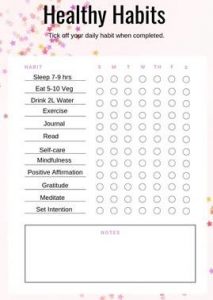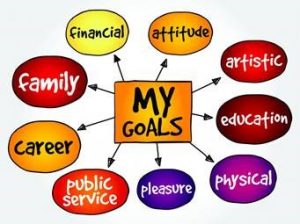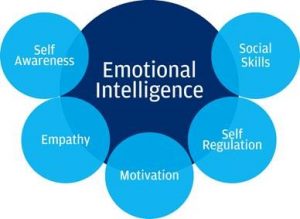Unlocking Employee Engagement
 How do you keep employees engaged? And especially now, in this time of crisis, how do you keep employees focused, while understanding the impact of these unprecedented times on their very lives? It’s not easy. Most people will take any tips they can to realistically move projects along. And knowing how to lead beyond work takes some creative initiative.
How do you keep employees engaged? And especially now, in this time of crisis, how do you keep employees focused, while understanding the impact of these unprecedented times on their very lives? It’s not easy. Most people will take any tips they can to realistically move projects along. And knowing how to lead beyond work takes some creative initiative.
Leah M. Joppy & Associates recently hosted a webinar titled 5 Tips to Unlocking Employee Engagement in Crisis – And Beyond. The purpose behind this webinar was to explore ways we all can use to keep employees engaged, active and interested.
Obviously, this subject was a hot one! During the highly interactive webinar we informed each other. Creative ideas were tossed around. Each participant could absorb the information and ask questions. Everyone came away from the webinar with insights into what they could do given their individual situation.
Here are some of the takeaways from the webinar.
- First, lead by example. We learn from each other. How we react is often an extension of how our leader deals with the situation.
- Encourage virtual collaboration. For some, this may seem silly, or scary. Technology is often puzzling. But showing how easy and effective it can be puts everyone at ease.
- Get to know your team on a social level. We’re not robots, rights? Getting to know your team as individuals, with specific needs, helps you appreciate more fully exactly what they’re going through and will help to identify resources needed.
- Offer honest feedback regularly. Think about what we hear on the news now – don’t we all appreciate honest assessment rather than vague direction?
- Recognize team members using their Appreciation Language. Everyone wants, and needs, appreciation, but you have to know how THEY want to be appreciated. People are different and they have a preference of method in which they like to be appreciated.
- Mindfulness. How do you feel about the current crisis? Whether your glass is half full or half empty, it is refillable. Taking care of ourselves today will determine our tomorrow, post-crisis.
- Practice empathy and flexibility. People have a lot going on – loss of job, homeschooling kids, personal health issues and maybe elderly parents who may live in another state – all of which is only made more complicated by the crisis. They need someone to be able to talk to and understand – to LISTEN. This is a new situation for most of us.
- Stay connected. There are so many ways nowadays – through phone, messaging, Zoom, Skype, GoToMeeting, and more. Staying connected keeps us occupied and engaged.
All in all, the webinar left us all energized. See the additional resources we sourced below. And stay tuned for the next one. If you want to make sure you don’t miss it, send me your email so I can include you on the next announcement.
Additional Resources:
- Book: “The 5 Languages of Appreciation in the Workplace: Empowering Organizations by Encouraging People“
- Book: “Leading From Where You Are: How Every Person Can Help or Hinder The Collaborative Culture“
- Article: Six Ways to Engage Virtual Employees
- Article: 7 Tips to Increase Employee Engagement Without Spending a Dime
Be safe, be well everyone!
Navigating Through A New Normal
 As we all try to adapt to the changes going on in the world right now and establish new routines, one of the biggest challenges is feeling disconnected from our team and working from home in solitary. As a manager, you’re trying to stay calm and positive. You’re checking in with your team and helping them with prioritization and staying focused on achievable tasks. It’s a daunting undertaking and can make you feel more than a little overwhelmed and stressed. It can also feel a little lonely. You’re focused so hard on helping your staff that you can start to neglect your own goals and well-being. That’s why coaching can be just the answer. Working with a coach provides you with the partner you need while you’re trying to navigate the new normal of life. Here are a few areas where a coach can help right now:
As we all try to adapt to the changes going on in the world right now and establish new routines, one of the biggest challenges is feeling disconnected from our team and working from home in solitary. As a manager, you’re trying to stay calm and positive. You’re checking in with your team and helping them with prioritization and staying focused on achievable tasks. It’s a daunting undertaking and can make you feel more than a little overwhelmed and stressed. It can also feel a little lonely. You’re focused so hard on helping your staff that you can start to neglect your own goals and well-being. That’s why coaching can be just the answer. Working with a coach provides you with the partner you need while you’re trying to navigate the new normal of life. Here are a few areas where a coach can help right now:
Establishing routine. Just the act of having a coaching session once a month can start a new routine. And that time is yours to discuss goal setting, planning for the future, whatever you like! Having a concrete action plan with a sense of accountability can also jump-start a new routine and will carry you into well into the future.
Encouraging self-care. So much is out of our control, but one thing within our control is how we take care of ourselves. As a manager, you may be so focused on your team that you forget to make yourself a priority. However, maintaining a sleep schedule, taking time to exercise and eat properly are just some of the activities that encourage calm and rejuvenate the mind, body and spirit.
Looking to the future and establishing a path forward. We all have a little more time on our hands right now. Rather than thinking about what you can’t do, it’s an ideal time to think about what you CAN accomplish, both for yourself and your team. What were some of the goals you had in mind before we all needed to adapt to a new normal? Was it working on conflict resolution? Or perhaps learning how to manage multiple tasks and priorities more effectively? Now is an ideal time to set a strategy for the future with the help of a coach.
If you’ve thought about working with a coach, but have been setting the idea aside for a more convenient time, now is the perfect time to start. At Leah M Joppy and Associates, we’re here to help you find a newfound focus during these challenging times. Call us at 301-670-0051 or email leah@lmja.com.
MANAGING CONFLICT
 When you get a group of people working together in an office day after day, conflicts are going to happen. Workplace conflict is a major issue that needs to be effectively addressed by leaders before it creates a toxic environment. If left unaddressed, it can lead to a lack of productivity, increased absenteeism and eventually higher employee turnover. There are so many reasons why conflict occurs in the workplace, including: poor management, unclear job roles, personality clashes, inadequate training, lack of opportunity and so many others.
When you get a group of people working together in an office day after day, conflicts are going to happen. Workplace conflict is a major issue that needs to be effectively addressed by leaders before it creates a toxic environment. If left unaddressed, it can lead to a lack of productivity, increased absenteeism and eventually higher employee turnover. There are so many reasons why conflict occurs in the workplace, including: poor management, unclear job roles, personality clashes, inadequate training, lack of opportunity and so many others.
While it’s a natural human tendency to avoid uncomfortable conversations with others, that strategy won’t work in the long term. It’s up to managers to give high priority to handling conflict in the office and ensure all employees are committed to solving issues. Managers need to instill in their staff that disagreements happens, but mutual respect is key. If handled correctly, conflicts can result in growth and greater understanding within the workplace. Here are a few suggestions to make sure that happens:
- Tackle issues early. Waiting until a conflict escalates and turns into an unmanageable issue only makes problem solving more challenging.
- Find out the root cause of the problem. Ask open-ended questions that provide people a chance to talk and feel valued. Dialog is key!
- Take a look how you manage. Before you can manage others, take a look at yourself and how you handle conflict. Do you act defensively? What kind of body language do you use?
- Act as a referee rather than a judge. As a manager, it’s important to remain impartial when conflicts arise. Meet with employees individually and then together in an uninterrupted space. Once employees are talking through their differences, let them work it out and don’t get drawn into taking sides.
- Consider conflict resolution training. Many managers don’t know how to effectively resolve conflicts because they simply haven’t had the proper training. It can really go a long way towards making conflict resolution more effective for all parties.
Conflict is an unavoidable part of workplaces, but it’s how these conflicts are handled that counts. Leah M Joppy and Associates has worked with many organizations to teach them how to effectively handle conflicts. We give you the tools to diffuse issues quickly and effectively in a manner where all employees feel valued and heard. For more information, contact us at 301-670-0051 or email leah@lmja.com.
SETTING GOALS
 A new year is upon us and it’s a time that naturally lends itself to reflection and thinking about what we want to achieve in the future. Setting goals are an important part of this process. Goals give us a sense of purpose and meaning, point us in the direction we want to go and help us become more interested and engaged. All of this adds up to greater overall happiness in our lives!
A new year is upon us and it’s a time that naturally lends itself to reflection and thinking about what we want to achieve in the future. Setting goals are an important part of this process. Goals give us a sense of purpose and meaning, point us in the direction we want to go and help us become more interested and engaged. All of this adds up to greater overall happiness in our lives!
Aristotle said, “Well begun is half done.” In terms of goals, he’s absolutely right. That’s why we need to pay careful attention to how we set our goals and move towards accomplishing them. Here are few ways to get started:
Set A Goal That Motivates You
Goal achievement requires commitment, so it’s important that you set goals that you’re actually motivated to accomplish. These are high priority areas of YOUR life, not your spouse, children, co-workers, etc. Start by writing down why your particular goal is valuable and meaningful to you. If you were to share your goal with someone, how would you convince him or her that it’s worthwhile? This is a good exercise to help you if you start to doubt your ability or lose confidence.
Choose a Goal That Emphasizes Your Value
It’s easy to beat ourselves down and not recognize our assets. Especially at the beginning of the year, we should think about making ourselves a priority. Think about how your friends and co-workers appreciate you – is it for your calmness? Your thoughtful consideration? Whatever your strengths, try to create a goal that works with that strength. Not only will it make you wiser and stronger, but more fulfilled.
Choose A Goal To Create a Journey, Not Just A Destination
Instead of setting a life goal, think about setting a life direction. Determine the things that would create a compelling and fun journey. Ask yourself some questions like: “How do I want to spend my time?” “What do I want to learn?” “What daily activities make me want to get out of bed and get moving?”
Set Goals In Writing
There’s something about the physical act of writing down a goal that makes it real and tangible. Frame your goal statement positively. Use the word “will” instead of “would like to” or “might.” Then post your goal in a visible place to remind yourself that you’re working towards this incredible accomplishment!
Make An Action Plan
You know what you want. Now, how are you going to accomplish it? Don’t get so focused on the outcome of your goal that you forget to plan all of the things that you need to tackle along the way. Write out the individual steps and cross each one off as you complete it. That way, you see that you’re making progress.
We adopt goals for one reason: to change our lives. The path toward our goals may not
always be easy or run smoothly, but having goals is part of what makes life happier and more meaningful. Leah M Joppy and Associates can help you make 2020 your best year yet by helping you identify and achieve the goals that really matter to you. Call us at 301-670-0051 or email leah@lmja.com.
EFFECTIVE TEAMS
 Building and maintaining an effective team is not something you should think about in between all of your other day-to-day activities. Projects come and go, but the teams behind them drive the results. Leaders play an important role in team development, from facilitating communication to mediating conflict to setting standards for accountability. But all too often, it’s easy to forget to check in and make sure teams are running smoothly and efficiently. The beginning of a new year is a great time to step back and take a look at what’s working, what’s not and make necessary changes. To do so, let’s take a look at a few characteristics of effective teams:
Building and maintaining an effective team is not something you should think about in between all of your other day-to-day activities. Projects come and go, but the teams behind them drive the results. Leaders play an important role in team development, from facilitating communication to mediating conflict to setting standards for accountability. But all too often, it’s easy to forget to check in and make sure teams are running smoothly and efficiently. The beginning of a new year is a great time to step back and take a look at what’s working, what’s not and make necessary changes. To do so, let’s take a look at a few characteristics of effective teams:
- Having a common goal and shared objectives
- Creating a positive environment around the objectives
- Maintaining open communication
- Establishing clearly defined team roles
- Focusing on time management in order to meet deadlines
- Implementing practical problem solving tactics
- Encouraging differences in opinions and not suppressing alternative ideas
You can have all of the checkpoints listed above, but the foundation of any effective team is trust. Team members need to know that everyone will deliver on their promises, support shared goals and maintain open communication. Patience, transparency and providing mutual feedback are a few ways to cultivate trust. Team building exercises and problem-solving activities are also effective ways to build team trust.
Effective teams are the foundation of every successful organization. If you feel like your teams could use some help in the New Year, Leah M. Joppy and Associates can help. We’ve helped a wide variety of organizations assess their current team structure, determine where changes can be made and develop a course of action to get everyone on the same page. We also specialize in team building activities that promote bonding and trust. For more information, contact us at 301-670-0051 or email leah@lmja.com.
Strategic Planning For The New Year
 Like most of us, you’re probably consumed with all the holiday hoopla right now and finishing out the current year on a strong note. But don’t forget that 2020 is just around the corner and you can’t put off strategizing for the New Year. Now it the time to clarify your goals for next year and beyond, think about how you can meet those goals and when you should meet with your team to get everyone on board.
Like most of us, you’re probably consumed with all the holiday hoopla right now and finishing out the current year on a strong note. But don’t forget that 2020 is just around the corner and you can’t put off strategizing for the New Year. Now it the time to clarify your goals for next year and beyond, think about how you can meet those goals and when you should meet with your team to get everyone on board.
You can make an argument that your annual strategic planning session is one of the most important things you’ll do all year. It’s a chance to move your team’s long-term strategic goals forward and make sure you’re all on the same page. It gives you an opportunity to step back and look at the bigger picture. For example, what are some of the biggest challenges facing your department over the next year and beyond? What your strengths and weaknesses to meet those challenges?
No pressure, right? Strategic planning takes effort and preparation, but it doesn’t have to become a stressful exercise. Here are a few steps to get the ball rolling:
- Define your department’s vision: This is the first and most critical step in creating a long-term plan. This statement should answer the key questions that drive your department. Where are you headed? Where do you want to be? Get it down on paper!
- Establish short-term goals: This should include everything you want to achieve over the next 12-36 months. Remember to keep them “S.M.A.R.T.” (specific, measurable, actionable, reasonable and timely).
- Outline your strategies and create an action plan: Strategies are the steps you’ll take to meet your short-term goals. Your action plan is all about the specifics – what you’re doing, when you’ll do it, what resources are needed, etc.
- Review and modify on a regular basis: Don’t create a strategic plan and leave it at that. Check in regularly to make sure you’re progressing toward your goals. Foster strong communication with your team to ensure everyone understands your direction and what they should be doing to achieve strategic goals.
Planning in advance is one way effective leaders avoid the stress of being behind the eight ball. Leah M. Joppy and Associates has worked numerous firms to draft annual plans that align and inspire teams to reach their goals for the coming year – and beyond. Then we help you put it all into action. For more information, contact us at 301-670-0051 or email leah@lmja.com.
Coaching For Self Reliance
 What is your first memory of feeling truly self-reliant? Maybe it was the day you received your driver’s license and the possibilities that came with the feeling of independence. Perhaps it was when you became financially independent from your parents and started paying your own bills. Whatever the example that comes to mind, self-reliance is trusting your abilities to get through the challenges of life on the back of your own resourcefulness.
What is your first memory of feeling truly self-reliant? Maybe it was the day you received your driver’s license and the possibilities that came with the feeling of independence. Perhaps it was when you became financially independent from your parents and started paying your own bills. Whatever the example that comes to mind, self-reliance is trusting your abilities to get through the challenges of life on the back of your own resourcefulness.
In his essay entitled “Self-Reliance”, Ralph Waldo Emerson states that society has an adverse effect on a person’s growth. Self-sufficiency, Emerson wrote, gives a person the freedom they need to discover one’s true self and attain true independence. He advocates that people avoid following the path of others and follow their own instincts to blaze their own trail. Self-reliance means different things to different people, but there are a few character traits that are often associated with it. You can probably see yourself in at least a few:
- Self-disciplined
- Hardworking and dedicated
- Dependable
- Perseverance
- Reliable
Self-reliance is important for so many reasons beyond just the basics. It means you can solve problems and make decisions by yourself. It enables you to develop self-knowledge and self-acceptance. Self-reliance also provides perspective, which can lead to greater direction in your life. And perhaps one of the greatest gifts is that it allows you to feel happy by yourself and about yourself – without relying on others to provide that happiness.
Sounds great, right? But we all know that sometimes self-reliance is easier said than done. Are you feeling like you could use a self-reliance jumpstart? Here’s a short list of some ways to start:
- Accept yourself and appreciate your unique character strengths.
- Build your inner confidence. Receiving compliments and reassurance from others feels great, but self-reliance involves the ability to feel confident in yourself without them.
- Make your own decisions and stop looking outside for security and guidance.
- Recognize dependence and manage it. Turning to others is not a bad thing, but when we do it consistently, we miss out on chances to build up our own confidence.
And that’s just the beginning…
Self-reliance doesn’t mean living in a bubble without other people. However, it is knowing when to ask for help without handing over your sense of self. That’s where a coaching partner can be a powerful ally. Leah M Joppy and Associates is ready to work with you to create a path to greater self-sufficiency. Call us at 301-670-0051 or email leah@lmja.com to discuss your goals.
There are many reasons why people work with a coach. Learn more.
Emotional Intelligence
 Emotional intelligence has been a hot topic in the workplace for quite a while, but what exactly does it mean and why is it so important? Emotional intelligence refers to a person’s ability to recognize and understand emotions both in themselves and others. According to Peter Salovey and John D. Mayer, two leading researchers on the topic, there are four different levels of emotional intelligence: perceiving emotions, reasoning with emotions, understanding emotions and managing emotions.
Emotional intelligence has been a hot topic in the workplace for quite a while, but what exactly does it mean and why is it so important? Emotional intelligence refers to a person’s ability to recognize and understand emotions both in themselves and others. According to Peter Salovey and John D. Mayer, two leading researchers on the topic, there are four different levels of emotional intelligence: perceiving emotions, reasoning with emotions, understanding emotions and managing emotions.
So, why does emotional intelligence matter in the workplace? Emotional intelligence is widely recognized as a valuable skill that helps improve communication, management, problem-solving and relationships within the office. Let’s take a look at the differences between a workplace with High Emotional Intelligence versus Low Emotional Intelligence:
High Emotional Intelligence Workplace
- Keeping cool under pressure
- Practicing effective conflict resolution
- Having greater empathy towards team members
- Listening and responding calmly to constructive criticism
- Making better decisions that benefit everyone and solving problems quickly and effectively
Low Emotional Intelligence Workplace
- Possessing a passive or aggressive communication style
- Refusing to work as a team
- Playing the “victim role” and not taking responsibility for behavior or work errors
- Being overly critical of others or not open to team members’ opinions
There’s no question which environment a person would rather work in day after day. And there’s also no question which workplace enjoys greater productivity, lower turnover and happier team members. Emotional intelligence plays a vital role not only in well being, but the overall success of a workplace.
Fortunately, emotional intelligence can be improved with training and practice. That’s where Leah M. Joppy and Associates can help. We’ve worked with many work teams to help them increase their knowledge of emotional intelligence in the office, put practical ideas into practice and look for areas of improvement. For more information, contact us at 301-670-0051 or email leah@lmja.com.
IMPLICIT BIAS (Part 2)
 Last month, we examined implicit (or unconscious) bias on a broad scale and how it comes into play in our day-to-day life. This month, we’re taking a look at implicit bias in the workplace and its impact. And no question about it, the impact can be vast – and costly for businesses. From impairing diversity and retention rates to undermining recruiting efforts and employee morale, the effects of implicit biases are widespread and should not be ignored.
Last month, we examined implicit (or unconscious) bias on a broad scale and how it comes into play in our day-to-day life. This month, we’re taking a look at implicit bias in the workplace and its impact. And no question about it, the impact can be vast – and costly for businesses. From impairing diversity and retention rates to undermining recruiting efforts and employee morale, the effects of implicit biases are widespread and should not be ignored.
An implicit bias is an unconscious association, belief, or attitude toward any social group. Due to these biases, people may often associate certain characteristics or qualities to all members of a particular group (stereotyping). There are all types of implicit biases, but some are more relevant to the workplace. Here are a few examples:
- Affinity bias: the tendency to prefer people who appear similar to ourselves
- Perception bias: the tendency to form stereotypes and assumptions about certain groups, thus preventing objectivity and lumping all individuals with their group membership
- Confirmation bias: the tendency to try to confirm pre-existing beliefs and ignore information that doesn’t conform to these beliefs
So, what can be done to combat implicit bias in the workplace? One of the most important steps is building bias awareness. For people unfamiliar with implicit bias, it can be a tough concept to fully understand and admit that it exists in their office. By building awareness and making the decision-making process more mindful, employees are less likely to lean on mental shortcuts when it comes to evaluating performance, nominating people for promotions or hiring new workers.
Leah M Joppy and Associates regularly conducts training to address and combat implicit bias in the workplace. We work with your organization to set actual, tangible goals to measure the success of the program. Training is beneficial for all employees, but is particularly helpful for those in leadership positions, as their unconscious biases can impact hiring, promotions and performance evaluations. It’s an important topic that your organization can’t afford to ignore. For more information, contact us at 301-670-0051 or email leah@lmja.com.
COACHING FOR PERSONAL ACCOMPLISHMENT
 When we think about our life accomplishments, we often reflect on what we’ve achieved career-wise. We received the promotion and big raise, moved to the corner office or changed companies to move forward in our careers. But what about our personal accomplishments? What do we want to achieve outside of the office in terms of personal goals that bring us joy and fulfillment? With the busy day-to-day of our work schedules, these goals and accomplishments sometimes fall to the back burner. It’s important to carve out time to think about what we want out of life and put goals in place to make them possible.
When we think about our life accomplishments, we often reflect on what we’ve achieved career-wise. We received the promotion and big raise, moved to the corner office or changed companies to move forward in our careers. But what about our personal accomplishments? What do we want to achieve outside of the office in terms of personal goals that bring us joy and fulfillment? With the busy day-to-day of our work schedules, these goals and accomplishments sometimes fall to the back burner. It’s important to carve out time to think about what we want out of life and put goals in place to make them possible.
Perhaps you’ve heard of the SMART mnemonic. It’s a useful way of making goals more powerful and attainable. SMART typically stands for:
- S – Specific (or Significant)
- M – Measurable (or Meaningful)
- A – Attainable (or Action-Oriented)
- R – Relevant (or Rewarding)
- T – Time-bound (or Trackable)
For example, instead of having “Travel the world” as a personal goal, it’s more powerful to use the SMART goal of “To complete my world travels by December 31, 2028.” You can then start to break down your goal and begin preparation. Here are a few broad guidelines to help you set effective, achievable personal goals – whether you want to travel the world, take up a new hobby, run a marathon or whatever your heart’s desire:
Write it all down: Putting goals on paper give them more credibility and force. Don’t forget to state each goal as a positive statement!
Be precise: Entering dates, times, amounts, etc. can help you measure achievement and gives you a stronger sense of accomplishment.
Set priorities: If you have several goals, give each a priority to avoid feeling overwhelmed. It also keeps you focused on your most important goals.
Be realistic: Don’t fall into the trap of setting goals that are unrealistic and possibly unattainable. There’s nothing wrong with a challenge, but too many obstacles can lead to frustration and throwing in the towel.
You wouldn’t set out on a major journey without any idea of your destination. Why should your life be any different? Leah M Joppy and Associates has helped many people accomplish their life goals outside of the office and we can do the same for you! Call us at 301-670-0051 or email leah@lmja.com to discuss what you want to achieve.
Here are other reasons why people work with a coach.